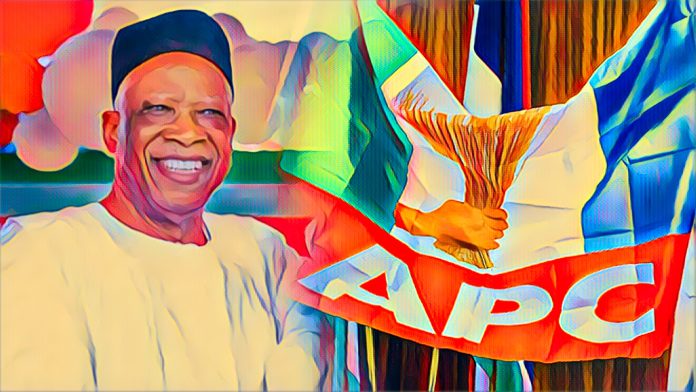The All Progressives Congress (APC) is grappling with internal unrest due to its failure to adhere to its constitution. The party has not constituted essential organs, such as the National Advisory Council (NAC), leading to dissatisfaction among leaders. This crisis underscores the importance of proper governance within political parties.
Article 11 of the APC constitution outlines several organs crucial for the party’s administration. However, the party has struggled to form its NAC, previously known as the Board of Trustees (BoT). This has led to tension among party leaders who feel sidelined by President Bola Tinubu and the national chairman, Umar Ganduje.
The NAC, described in Article 13.2 of the constitution, is designed to uphold the party’s highest moral standards and intervene in disputes. It also plays a crucial role in guiding party policies and promoting reconciliation among members. The council can convene the National Convention, National Executive Committee (NEC), or National Caucus when necessary.
Since 2015, the APC has been unable to form its NAC. This absence has caused various crises within state chapters and hindered the holding of NEC meetings. The former national chairman, John Odigie-Oyegun, failed to establish the council, which would have included former Vice President Atiku Abubakar and other senior party figures.
The lack of NAC contributed to the tumultuous exits of Odigie-Oyegun and his successor, Adams Oshiomhole. Their departures left the party vulnerable to the influence of President Buhari and the Progressives Governors Forum (PGF).
Despite claiming to be Africa’s largest party, the APC has faced criticism for not holding quarterly NEC meetings. The election of Abdullahi Umar Ganduje as national chairman has not resolved these issues. Although Ganduje has initiated weekly NWC meetings and started electronic membership registration, he has yet to form the NAC.
If constituted, the NAC would include President Tinubu, Vice President Kashim Shettima, Senate President Godswill Akpabio, House Speaker Tajudeen Abass, and other top leaders. This council would bear significant responsibility for the party’s actions.
The NAC is one of 13 organs specified in the APC constitution. Others include the National Convention, NEC, NWC, and various regional and local committees. The tenure of NAC members, excluding specified positions, is four years, renewable once.
Salihu Lukman, former National Vice Chairman (North West), resigned from the party due to the Ganduje-led NWC’s failure to convene NEC meetings and other critical assemblies. Lukman argued that the APC has become indistinguishable from the People’s Democratic Party (PDP) and called for a return to the party’s founding vision.
Lukman also criticized President Tinubu’s policies, describing them as anti-people and contradictory to his campaign promises. He emphasized the need for the APC to restore constitutional order and unity among party leaders and Nigerians.
Dominic Alancha, a North Central stakeholder, echoed Lukman’s concerns. He stressed the need for consultation on implementing the party’s manifesto and urged Ganduje to adhere to the APC constitution. Alancha called for the next NEC meeting to address these issues and ensure that the NAC and other organs are constituted.
Ganduje’s Special Assistant on Civil Societies and Support Groups, Comrade Okpokwu Ogenyi, dismissed claims of stakeholders being sidelined. He assured that President Tinubu would address any shortcomings in the party’s administration. Ogenyi noted that the APC has lacked a formal BoT since its formation due to the party’s origins as a coalition of different political groups.
He added that President Buhari’s health issues during his tenure disrupted the party’s operations. Ogenyi expressed confidence that President Tinubu, a committed democrat, would rectify these issues. He mentioned that Ganduje had proposed a NEC meeting awaiting the president’s approval. After a planned mini-convention, there would be an elective convention to rezone and elect party positions for a new term.
Ogenyi concluded that once these processes are completed, the BoT would be established, allowing for comprehensive participation and deliberation on party matters.
The APC’s internal crisis highlights the challenges of maintaining party unity and governance. By addressing these constitutional shortcomings, the party can restore confidence among its members and ensure effective leadership.



